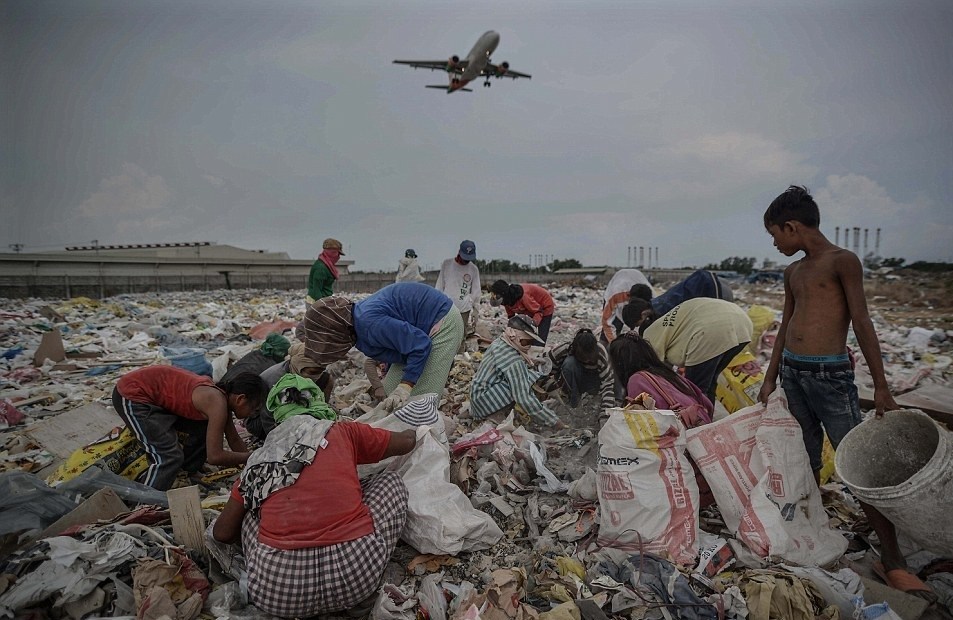Absolute poverty occurs not because we do not have enough wealth or generate sufficient income, but because neither is well distributed.
Amid all the suffering wrought by the pandemic, the biggest tragedy by far is that of the extreme poor. Extreme poverty is defined as “a condition characterized by severe deprivation of basic human needs, including food, safe drinking water, sanitation facilities, health, shelter, education and information.”
In economic terms, it means living with less than $1,9 (PPP) per day. According to UN estimates, by the end of 2020, up to 500 million more people may fall into absolute poverty. Adding to the approx 700 million poor that already existed previous to the crisis, this represents reversing the progress made in approximately 12 years.
Before the pandemic struck, different projections forecasted that at the pace we were advancing by 2030 we would have decreased the number of poor to 500 Million.
The fundamental Sustainable Development Goal (SDG) of 2030 is to eliminate extreme poverty. Unless some radical action is taken, the core objective of the SDGs will not be achieved. Given the significant impact it can have in other domains, such as violent conflicts and migration, this is where we should be focusing all of our efforts.
Although there are some pockets of extreme poverty in developed countries — unsurprisingly more in the US than in any other rich country — the bulk of the people in danger of falling or already living in destitution, are in the developing world. And as has become evident in the last few weeks, developing countries cannot afford the increase in government spending that is underway in the rich world to offset the economic earthquake caused by Covid-19.
Is it feasible to eradicate poverty?
Global household wealth in 2019 was estimated to be USD 360 Trillion. To put this figure into perspective, if total global wealth would be equally distributed amongst every adult on the planet, each one would possess assets worth $75,000. But while the richest 1% own 45% of total global wealth, the poorest 50% of adults collectively account for less than 1%.
Inequality has two dimensions, wealth and income. Wealth is what we own, a house, a car, a cow or some stocks. Income is the money we earn every day/month/year. According to the World Bank, in 2018 the world produced $136 Trillion (PPP) of goods and services. Roughly 20% of this is captured by the richest 1%, while only 10% is earned by the bottom 50%.
If all it takes to save someone from destitution is a couple of dollars per day, the cost of giving the poorest 1 billion people a universal basic income (UBI) of $2 (PPP) per day would be only 2,6% of the income of the highest 1% of earners.
Similarly to what we have heard for decades about hunger, absolute poverty occurs not because we do not have enough wealth or generate sufficient income, but because neither is well distributed.
How to achieve it?
Knowing that the resources exist, we should attend simultaneously the two most pressing human needs: food and housing. Research has shown that direct cash transfers are the best way to alleviate poverty and that its benefits spillover to society as a whole.
Contrary to what many conservatives think, the poor don’t waste the money in alcohol and cigarettes. The most comprehensive study done so far on direct cash transfers has found households spend the money in consumption, a profound measure of welfare, but also invest it in assets, home improvement and/or livestock. It has as well proven to increase the levels of psychological wellbeing.
As the majority of poor don’t have a bank account, but do have a mobile phone, money should be transferred via mobile banking. In Kenya, the pioneer in this field, such a system (that works with any mobile phone) exists since 2007. As previosuly stated, an annual tax of 4,4% over the 1% making the most money per year, would suffice to ensure no one ever spends a day hungry. Taxes of this sort should be progressive so that the richest 0,1% pay a larger share.
For the housing problem, wealth should be taxed. If the wealthiest 1% paid an annual tax of 3%, in 2–3 years there would be more than enough to build enough public housing for every person in extreme poverty*. Moreover, assets would be turned into assets.
Such a tax should also be progressive, making the ultra rich pay more (does it really change anything having $900 million instead of $1 Billion?). A very interesting model to study is Singapore where approximately 80% of its citizens live in subsidised units built by the government.
Rich countries have to invest most of this tax revenue in the developing world. Given the considerable challenge that migration has posed in Europe and the US in the past decade, such an approach would offer a more structural solution.
It has been done in the past and it is done today
Surprisingly, progressive taxation was an American invention of the 20th century. The top income tax rate in the US has fallen from more than 70% between 1936 and 1980 to 37% since 2018. Corporate taxes have declined from about 50% in the 1950s and 1960s to 16% in 2018. The results of having dismantled its progressive taxation system are there for everyone to see.
In the best run societies of today, Scandinavian countries or Germany, governments collect via taxes around 40%-45% of total annual GDP (the US collects only 24% and Mexico a meager 16%). Efficiently managed, these resources are more than enough to ensure not only food and shelter for everyone, but also high quality education and health care, amongst many other benefits.
Admittedly, we are far from adopting such measures at a global scale. The point is to emphasise we haves the resources, the technology and the experience to do it. I invite every reader that can afford it to share some of his/her income with the world’s poor. If you don’t know someone in need to send money to directly or a trustworthy foundation to donate to, I suggest checking the option of Givedirectly.org .
As in the aftermath of any major natural disaster, we can abandon what we have built, or we can renew it to make it stronger. Covid-19 should not be an excuse to delay achieving a world without poverty, but a catalyst to accomplish it. The benefits are not just for the poor, but for society as a whole. Every single day a human being goes to bed hungry or in the street is our collective shame.
*3% of the assets of the wealthiest 1% are $4,86 Trillion. With an amount like this it is possible to build 243 million houses of $20,000.
David Abuchar Luna


